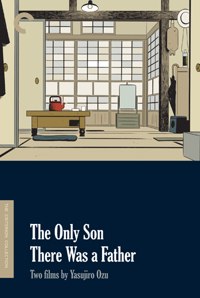On DVD: Much Ozu About Everything
In the DVD supplements for the new, typically gorgeous Criterion set Two Films by Yasujiro Ozu, film school mega-guru and one-man textbook industry David Bordwell sums up his veneration for Ozu by saying that the Japanese master simply had "the hottest hand," the greatest filmography, in the history of the medium. Bordwell goes so far as to assert that he "cannot imagine such a thing as a 'bad' Ozu film." Are you going to argue?
You shouldn't, because Ozu is (at the very least) one of the greatest five filmmakers ever, and the only one whose long resume is uncorrupted by industry pitfalls. (Kurosawa can't touch him with a 10-foot-long Shogun spear.) He managed this by defying so much of what "movies" have always represented -- sensation, exploitation, populism, glamour -- and at the same time nursing cinema's innate connectiveness with the viewer. Ozu is most famous for his refined battery of camera moves and compositional decisions, but you don't have to be impressed by technique in order to feel him in your stomach. Most filmmaker's don't trust you to think and muster generosity and empathize with unspoken feelings, but Ozu always did, from his silent comedies to his great postwar masterpieces.
And it's not as if the Western world didn't notice -- Ozu has never been out of print here, and almost a full half-century since his last film was released, he persists in our distracting culture like a social worker taking blood-pressure readings on a stock exchange floor.
Those already inoculated with the Ozu virus have probably already preordered their Criterion package, because that's what you do. For those who haven't, the more apt initiation rites include Late Spring (1949), Tokyo Story (1953), Floating Weeds (1959) and An Autumn Afternoon (1962), all of which are available on context-laden DVD's. The "two films" here are earlier and new to us (recently rediscovered and restored), and like all Ozu they're heartbroken glimpses of Japanese life enduring the tortured upheavals of the 20th century.
 But Ozu rarely took on the more catastrophic history (the 1945 atomic blasts aren't mentioned overtly in any Ozu film). Instead, the century for him was a thorny, disorienting process of one generation of parents attempting to understand or control their children, who know things are different. Without resorting to atrocity, Ozu caught the modern age in amber, as a neverending transition away from the way old Japan once thought of itself. The Only Son (1936) is Ozu's first sound film, a mid-Depression ballad in which a son of a penniless silk-spinning mother grows up to be, in his eyes, an underachieving failure, in time for her to visit him in the scrubland ghettos of Tokyo. There Was a Father (1942, pictured above), one of only two films Ozu made during WWII, similarly limns the at-odds relationship between an doting schoolteacher and his motherless, school-age son.
But Ozu rarely took on the more catastrophic history (the 1945 atomic blasts aren't mentioned overtly in any Ozu film). Instead, the century for him was a thorny, disorienting process of one generation of parents attempting to understand or control their children, who know things are different. Without resorting to atrocity, Ozu caught the modern age in amber, as a neverending transition away from the way old Japan once thought of itself. The Only Son (1936) is Ozu's first sound film, a mid-Depression ballad in which a son of a penniless silk-spinning mother grows up to be, in his eyes, an underachieving failure, in time for her to visit him in the scrubland ghettos of Tokyo. There Was a Father (1942, pictured above), one of only two films Ozu made during WWII, similarly limns the at-odds relationship between an doting schoolteacher and his motherless, school-age son.
The social fabric around Ozu's characters in the '30s and '40s is in a state of intense crisis, but Ozu's way of introducing into his reflective characters' lives is via shorthand and symbolism. Nothing happening on a national or global level is as immediate or important as the conflicted love and growing pains shared by parent and child. Still, The Only Son is in its quiet way a scathing portrait of poverty (think of it as Ozu's Grapes of Wrath), while There Was a Father exudes a knotted sense of self-sacrifice that won it favor from the wartime censors - not something Ozu must've loved. Maybe that's why he didn't make another film until 1947.
As always, it's the rhythms and textures that are uniquely Ozuian -- for example, that odd and slow way Ozu characters pause in thought after a line of dialogue, and how the film holds on them, also lost in contemplation, before going to the reaction shot. (In The Only Son, Ozu cuts from a weeping confrontation to a side room, empty but for a "charm" painting on the wall, meant for preventing babies from crying at night. And he holds the shot for a full minute.) Ozu is often lauded for being rigorous, to the point where his films can sound like rigor mortis. But really, it's just the man's potent sensibility transferred to film, and his Olympian sympathy muscle flexing and releasing, like no other filmmaker's.

Comments
No need to knock Kurosawa to state your preference. I'd point to the 2002 Sight and Sound poll for an interesting comparison:
The critics chose Ozu's Tokyo Story as #6, but excluded any Kurosawa.
The directors, however, excluded Ozu -- but included 2 (!) movies from Kurosawa: Both Rashomon and Seven Samurai were tied for #9...
Excellent article. Btw There Was a Father could be seen as a film about a father who refused to be a father.